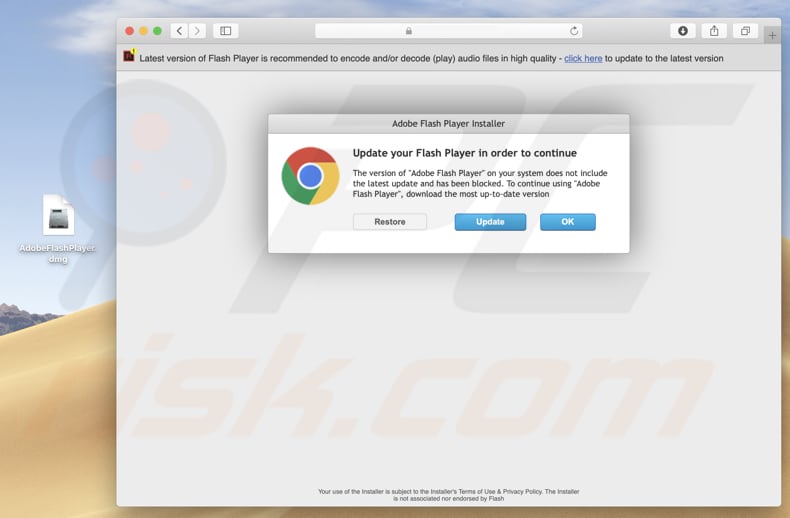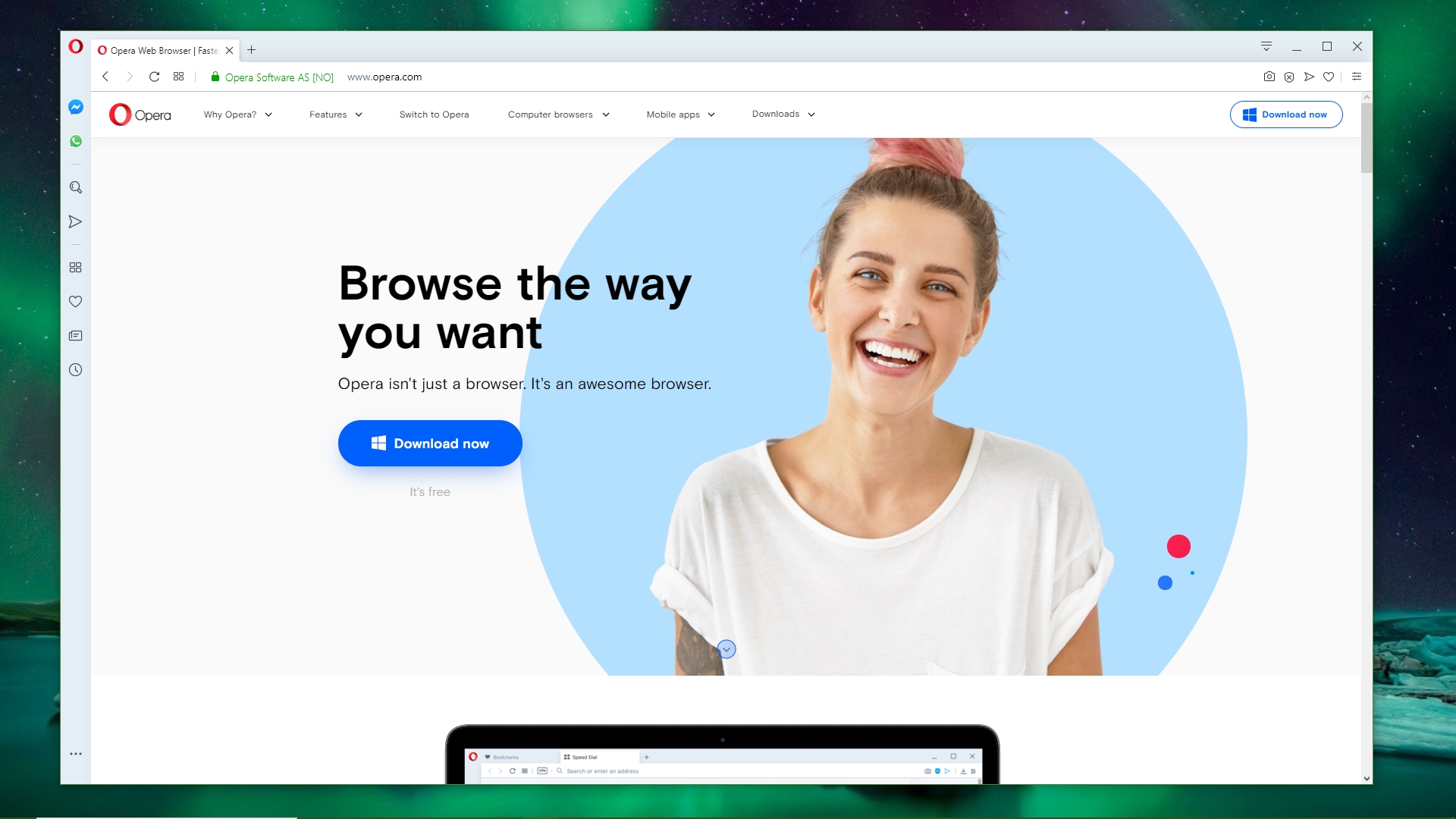Our local encryption/decryption to keep your sensitive data out of our hands depends on it.
We do not recommend you attempt to login without JavaScript enabled
Securely save passwords and automatically log into any site on the internet.

Opera Neon concept browser for Mac & Windows Get a glimpse into what Opera for computers could become. Each Opera Neon feature is an alternate reality for the Opera browser. Download now Free for Windows. Opera can be installed on your system at a later time with the offline installer package. The offline installer package can be stored on an USB drive, for example, for later installation. Having an offline installer package is helpful if your computer cannot connect to the Internet during the time of installation.
LastPass Universal Windows Installer
The Universal Windows installer installs browser extensions for Internet Explorer, Edge, Chrome, Firefox, and Opera.
- Opera GX is a special version of the Opera browser which, on top of Opera’s great features for privacy, security and efficiency, includes special features designed to complement gaming. Opera GX is available in early access for Windows and Mac. Linux development is in progress.
- Opera will try to distinguish pop-ups that you have requested (login pages, for example) from pop-ups launched automatically from websites, such as advertising. By default, Opera will block pop-ups you have not requested. You can control how Opera handles pop-ups. To change pop-up settings: Go to Settings.
- This is Opera 75 beta update. Chromium is updated to version 89.0.4389.72. For details on all the changes, check the changelog. Installation links: Opera beta for Windows (By using the Opera beta for Windows installer, you accept the Opera for Computers EULA) Opera beta for macOS Opera beta for Linux – deb packages Opera beta.
LastPass for Chrome
Features dependent on a binary component, such as sharing of login state with other browsers, will not function.
LastPass for Firefox
LastPass browser extension for Mozilla Firefox. This will also work on other Mozilla based browsers such as SeaMonkey, Mozilla, etc.
LastPass for Microsoft Edge
If you're using Chromium-based Microsoft Edge, this one's for you. LastPass browser extension for Microsoft Edge without a binary component. Features dependent on a binary component, such as automatic logoff after idle and sharing of login state with other browsers, will not function.
LastPass for Microsoft Edge Legacy
If you're still using an older version of Microsoft Edge not based on Chromium, this one's for you. LastPass browser extension for Microsoft Edge without a binary component. Features dependent on a binary component, such as automatic logoff after idle and sharing of login state with other browsers, will not function.
LastPass for Opera
LastPass browser extension for Opera without a binary component. Features dependent on a binary component, such as automatic logoff after idle and sharing of login state with other browsers, will not function.
LastPass for Chrome (full version)
LastPass browser extension for Google Chrome (full version) provides extra features such as sharing the login state with other browsers.
LastPass for Chrome
Features dependent on a binary component, such as sharing of login state with other browsers, will not function.
LastPass for Firefox
LastPass browser extension for Mozilla Firefox. This will also work on other Mozilla based browsers such as SeaMonkey, Mozilla, etc.
LastPass for Safari
LastPass browser extension for Apple Safari. This is a Mac App which includes the Safari extension. Click here for installation help.
LastPass for Microsoft Edge
If you're using Chromium-based Microsoft Edge, this one's for you. LastPass browser extension for Microsoft Edge without a binary component. Features dependent on a binary component, such as automatic logoff after idle and sharing of login state with other browsers, will not function.
LastPass for Opera
LastPass browser extension for Opera without a binary component. Features dependent on a binary component, such as automatic logoff after idle and sharing of login state with other browsers, will not function.
LastPass Mac App
The LastPass vault you love for macOS. This is the same Mac app that includes the LastPass browser extension for Safari. Click here for Safari extension installation help.
LastPass for Chrome (full version)
LastPass browser extension for Google Chrome (full version) provides extra features such as sharing the login state with other browsers.
LastPass Universal Linux Installer
The Universal Linux installer installs browser extensions for Firefox, Chrome, and Opera.
LastPass for Firefox (i386 and x64)

LastPass browser extension for Mozilla Firefox. This will also work on other Mozilla based browsers such as SeaMonkey, Mozilla, etc. If you experience issues, try starting Firefox in safe mode.
LastPass for Chrome (full version)
LastPass browser extension for Google Chrome (full version) provides extra features such as sharing the login state with other browsers.
LastPass for Chrome
Features dependent on a binary component, such as sharing of login state with other browsers, will not function.
LastPass for Opera
LastPass browser extension for Opera without a binary component. Features dependent on a binary component, such as automatic logoff after idle and sharing of login state with other browsers, will not function.
LastPass for iPhone/iPad
LastPass for Android
Want even more LastPass?
View a history of our changes in our release notes.
If you experience issues with the latest release, please contact us.
Enable Autofill
If you enable Autofill, Opera can complete common forms for you online, such as your address or credit card information. To enable Autofill:
- Go to Settings.
- Click Advanced in the left sidebar, and click Privacy & security.
- Under Autofill, click the category you are interested in – Passwords, Payment methods or Addresses and more.
- Turn on the Save and fill… option.
To add an address or payment method for Opera to use when automatically filling in forms, click the Add button. Your contact or credit card information can later be edited or removed. Click the menu next to the item you wish to edit or remove.
Manage camera access on pages
Some sites may ask to access your computer’s camera. By default, Opera will always ask you to allow a site to access your camera. Opera will remember your sharing choice if the site is secured through an HTTPS connection. To allow or block sites from accessing your camera:
- Go to Settings .
- Click Advanced in the left sidebar, and click Privacy & security.
- Under Privacy and security, click Site settings.
- Click Camera.
- At the top, turn on or off Ask before accessing (recommended).
You can also set which camera you wish Opera to use by default, if you have more than one connected to your computer. Use the dropdown menu to set your camera preference.
Manage cookies in pages
Cookies are small data files that store information in connection with a website. For example, a cookie may be created to store the contents of a shopping basket or to confirm that you are logged in as you browse the pages of a site.
Cookies can also be used to construct a profile of your browsing habits and are therefore regarded by some as a privacy issue. Setting cookie preferences gives you control of how Opera handles them. The default setting is to accept all cookies. To set your cookie preferences:

- Go to Settings.
- Click Advanced in the left sidebar, and click Privacy & security.
- Under Privacy and security, click Site settings.
- Click Cookies and site data.
- At the top, turn on or off Allow sites to save and read cookie data (recommended).
There are two additional options for handling cookies:
- Clear cookies and site data when you quit Opera – Deletes cookies that have been added after this preference was enabled when closing the browser.
- Block third-party cookies – Blocks cookies set by other websites whose content is displayed in frames or images on the current website you are visiting. Blocking third-party cookies will allow only the cookies for the site you are visiting to be set on your system.
Click the Add button next to the Block, Clear on exit, or Allow sections to set site-specific cookie preferences for websites.
Type [*.] before the domain name to create an exception for an entire domain name. Creating an [*.]opera.com cookie exception will apply to pages such as blogs.opera.com and addons.opera.com. IP addresses can also be added as exceptions.
Manage how links are handled
Some sites may ask to open special types of links by default. These are called protocol handlers. For example, you can set Opera to open ical: links in Google Calendar’s web app or force mailto: links to open in your email web app. To allow or not allow sites to ask to be the default handlers of specific types of links:
- Go to Settings.
- Click Advanced in the left sidebar, and click Privacy & security.
- Under Privacy and security, click Site settings.
- Click Handlers.
- At the top, toggle on Allow sites to ask to become default handlers for protocols (recommended).
Click the x next to a handler to remove it.
Manage images on pages
You can control how Opera handles images on the pages you view. You can opt to display all images or not, as well as set site-specific image preferences. To change the image settings:

- Go to Settings.
- Click Advanced in the left sidebar, and click Privacy & security.
- Under Privacy and security, click Site settings.
- Click Images.
- At the top, turn on or off Show all (recommended).
Click the Add button to set site-specific preferences.
Manage JavaScript in pages
JavaScript is a scripting language used to add functions to pages, such as manipulating browser windows. In rare cases, JavaScript may be used intrusively to perform certain actions you may find annoying. For these cases, you can turn it off completely. If you do, some pages will not work as designed. To change JavaScript settings:
- Go to Settings.
- Click Advanced in the left sidebar, and click Privacy & security.
- Under Privacy and security, click Site settings.
- Click JavaScript.
- At the top, turn on or off Allowed (recommended).
Click the Add button to set site-specific preferences.
Manage location sharing in pages
Some sites may ask to use your location to provide localized features, such as reviews for nearby shops or coupons from businesses located in your area. To do this, these sites may ask you to allow geolocation on the page. You can choose whether or not to share your location when browsing. Opera will not share this information without your permission.
Setting location sharing preferences gives you control over how sites access your location. By default, Opera asks you if you’d like to share your location the first time you visit a site that requests it. You can choose to allow or deny access to your location, and Opera will remember your choice for future visits to that site. To manage your location sharing preferences:
- Go to Settings.
- Click Advanced in the left sidebar, and click Privacy & security.
- Under Privacy and security, click Site settings.
- Click Location.
- At the top, turn on or off Ask before accessing (recommended).
Click a icon to remove the individual site exception.
Read more about geolocation and location sharing.
Manage microphone access in pages
Some sites and web apps may ask to access your computer’s microphone. For example, a live-chat app may want to use your mic so you can speak to another person through their service.
By default, Opera will always ask you to allow a site to access your microphone. Opera will remember your sharing choice if the site is secured through an HTTPS connection. To manage sites’ access to your microphone:
- Go to Settings.
- Click Advanced in the left sidebar, and click Privacy & security.
- Under Privacy and security, click Site settings.
- Click Microphone.
- At the top, turn on or off Ask before accessing (recommended).
You can also set which microphone you wish Opera to use by default, if you have more than one connected to your computer. Use the dropdown menus to set your microphone preferences.
Manage MIDI access in pages
If you connect a musical instrument digital interface (MIDI) device to your computer, such as a keyboard or controller, some sites and web apps may ask to have exclusive access to the device. For example, a developer may make a new synthesizer available on the web that you can use with your keyboard.
When the site has exclusive access, other apps (both on the web and on your computer) may fail to receive output from your device.
By default, Opera will always ask you to allow a site to have exclusive access your MIDI device. Opera will remember your sharing choice if the site is secured through an HTTPS connection. To always allow or deny sites’ exclusive access to your MIDI devices:
- Go to Settings.
- Click Advanced in the left sidebar, and click Privacy & security.
- Under Privacy and security, click Site settings.
- Click MIDI devices.
- At the top, turn on or off Ask when a site wants to use system exclusive messages to access MIDI devices (recommended).
Manage desktop notifications
Desktop notifications allow websites and apps to display information about their service’s activities or status. These notifications display on your computer’s desktop even when the browser is minimized. They can alert you to things like new emails, special coupon offers, or if comments are posted to your blog.
You can control how sites deliver notifications. By default, Opera asks you if you’d like a site to notify you. You can choose to allow or deny the site to display notifications, and Opera will remember your choice for future visits to that site. To manage desktop notifications:
- Go to Settings.
- Click Advanced in the left sidebar, and click Privacy & security.
- Under Privacy and security, click Site settings.
- Click Notifications.
- At the top, turn on or off Ask before sending (recommended).
Click the Add button to set site-specific preferences.
Manage saved passwords
When you log into a website, Opera gives you the option to save your password. If you click Never, that site will be added to Opera’s never saved list. By default, Opera will offer to save your passwords. To disable this offering:
Opera Setup Mac
- Go to Settings.
- Click Advanced in the left sidebar, and click Privacy & security.
- Under Autofill, click Passwords.
- At the top, turn off Offer to save passwords.
To view details or to remove your passwords, click the menu next to a website.
When entering a username and password for a website, Opera will ask if you wish to save the password in your password manager.
Click Save to save the password for this website in your password manager.
Click Never to decline saving your password for this website.
Click the X to close the window. Opera will ask again the next time you log in to the website.
To remove passwords individually:
- Go to Settings.
- Click Advanced in the left sidebar, then click Privacy & security.
- Under Autofill, click Passwords.
- Click the three-dot menu next to the password you want to remove, then click Remove.
To remove all passwords:
- Go to Settings.
- Click Advanced in the left sidebar, then click Privacy & security.
- Under Privacy and security, click Clear browsing data.
- In the pop-up window, click Advanced.
- Select the Passwords and other sign-in data box (leave everything else unselected), then click Clear data.
Manage pop-ups and redirects in pages
Opera will try to distinguish pop-ups that you have requested (login pages, for example) from pop-ups launched automatically from websites, such as advertising. By default, Opera will block pop-ups you have not requested. You can control how Opera handles pop-ups. To change pop-up settings:
- Go to Settings.
- Click Advanced in the left sidebar, and click Privacy & security.
- Under Privacy and security, click Site settings.
- Click Pop-ups and redirects.
- At the top, turn on or off Allowed.
Opera Uninstaller Mac
Click the Add button to set site-specific preferences.
